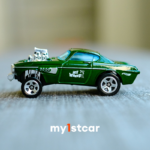

Unpopular Opinion: What If I Want a Bakkie As My First Car?
Should Your First Car Be a Bakkie? Here’s What You Need to Know
While many first-time buyers lean toward compact hatchbacks, you might be thinking bigger—literally. Whether it’s for work, lifestyle, or personal preference, getting a bakkie as your first vehicle is worth exploring.
But is it the right move? Let’s break it down.
Single Cab vs Double Cab: What Fits Your Lifestyle?
If you’re a student or young driver who doesn’t need much space, a single cab will likely cover your needs—especially if you’re mostly driving solo or with one passenger. It’s also more affordable and practical when you’re on a budget.
However, if your first car is being used to help out on the farm, family business, or job site—and you’re transporting people regularly—a double cab is a smarter choice. It’s safer and more comfortable than having passengers ride in the load bin, which is unsafe and potentially illegal.
Recommended Bakkies for First-Time Buyers
If budget allows, consider reliable models known for durability and service support:
- Isuzu KB or D-MAX
- Toyota Hilux
- Ford Ranger
- VW Amarok
- Mazda BT-50
- Mitsubishi Triton
- GWM P-Series
Used or demo models like the Isuzu KB Fleetside Safety or D-MAX Fleetside Safety are top picks—they’re well-equipped with essential safety features for new drivers, and they offer great value for money.
On a Tight Budget? Consider a Compact Bakkie
Need space for gear, tools, or surfboards but want to keep costs down? A half-tonner or compact bakkie might be the answer.
Affordable and light on fuel, these options work well for solo drivers or small loads:
- Opel Corsa Utility
- VW Caddy
- Ford Bantam
- Nissan NP200
⚠️ Safety tip: Smaller bakkies like the NP200 and NP300 don’t perform well in crash tests. Safety is crucial—especially for first-time drivers—so weigh this heavily in your decision.
Do You Really Need a Bakkie?
Before you commit, ask yourself: Do I need a bakkie for work, utility, or lifestyle reasons? Or am I choosing it just for the look or idea of owning one?
If safety is a top priority (which it should be), smaller cars or well-rated hatchbacks might be a better fit. Many entry-level bakkies lack basic safety features like airbags or ABS—so be sure to review safety ratings before buying.
Final Thoughts
Bakkies can be great first cars—but only if they match your needs, budget, and safety expectations. If utility is your priority and you choose wisely, a bakkie can serve you well. If not, consider a safer and more cost-effective alternative to get you started on your driving journey.
Need help choosing your first car or exploring finance options? Check out our car calculator to see what’s possible.
Add a comment Cancel reply
Comments (0)
Related posts










